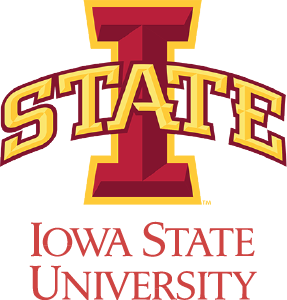Executive Board
Pat Schnable is a distinguished professor at Iowa State University where he holds an endowed chair in genetics and is an endowed scholar in agricultural entrepreneurship. Schnable directs ISU's Plant Sciences Institute that is fostering collaborations among plant scientists, engineers and computational scientists.
Schnable received his BS from Cornell University and was awarded a PhD in Plant Breeding and Genetics from Iowa State University. Prior to his faculty appointment Schnable conducted post-doctoral research at the Max Planck Institute for Plant Breeding in Köln, Germany.
Schnable manages a research program that emphasizes interdisciplinary approaches to understanding plant biology. His own expertise is in the areas of genetics, molecular biology, genomics, bioinformatics and phenomics but he collaborates with researchers in diverse fields, including agricultural, computer, industrial, and mechanical engineering and statistics. His scientific investigations of the maize genome have been wide-ranging and he has developed and/or deployed a number of important genomic tools and resources. He is the author of >240 peer-reviewed publications that have been cited ~31,600 times and has accrued an h-index of 89 (Google Scholar). Reflecting his interest in computational approaches to biology, he has an Erdös number of 3.
Schnable is an elected fellow of the American Association for the Advancement of Science, serves as consulting editor for PLoS Genetics (Impact Factor 5.9), is the past chair of the American Society of Plant Biology's Science Policy Committee and of the Maize Genetics Executive Committee. He is also the co-lead of the Genomes to Fields Initiative.
Schnable has co-founded several startup companies and serves on the scientific advisory boards of several others.
Jennifer L. Clarke is a professor in Food Science and Technology, and Statistics, and the Director of the Quantitative Life Sciences Initiative at the University of Nebraska-Lincoln. Dr. Clarke received her doctorate in Statistics from the Pennsylvania State University under the mentorship of C.R. Rao, and conducted post-doctoral research at the National Institute of Statistical Sciences in Research Triangle Park and the Department of Statistical Sciences at Duke University. Prior to coming to UNL in 2013, she was a faculty member at the University of Miami in the Division of Biostatistics and the Center for Computational Sciences. She serves as Chair of the seed grant steering committee of the Midwest Big Data Hub and her research has been supported by several federal agencies including the National Science Foundation, the National Institute of Health, the U. S. Department of Agriculture, and the National Institute of Justice. Her current interests include statistical and AI methodology for robust prediction, reproducible science, and training the next generation of data scientists.
Jack C. M. Dekkers is a C.F. Curtiss Distinguished Professor at in the Department of Animal Science of Iowa State University. Dr. Dekkers grew up in the Netherlands and received B.Sc. and M.Sc. degrees from the Wageningen Agricultural University and a Ph.D. in Animal Breeding from the University of Wisconsin. From 1989 to 1997 he was on faculty at the University of Guelph, working closely with the Canadian industry on genetic improvement of dairy cattle. He moved to Iowa State University in 1997, where he currently is leader of the Animal Breeding and Genetics group. Current research focuses on the genetic basis of feed efficiency and health in pigs and poultry, and on the integration of quantitative genetics and genomics in breeding programs. Dr. Dekkers chaired the 2011 Gordon conference on Quantitative Genetic and Genomics, bringing together scientists from human, animal, plant, and microbial genetics. He has also created and participated in several large-scale multidisciplinary and industry -academia research consortia, including several multidisciplinary research teams. Dr. Dekkers is the incoming chair of the partner organization NRSP-8.
David Ertl, Technology Commercialization Manager, manages research programs related to profitable corn production technologies such as the Genomes To Fields Initiative. David is a native of Connecticut and received his Bachelor's degree in Agronomy from the University of Connecticut. He then attended Iowa State University where he obtained a Masters and Ph.D. degree in Plant Breeding. Prior to coming to Iowa Corn, David worked in corn breeding at Pioneer. He has 15 U.S. patents and is author of more than 20 scientific journal articles. David's other passion is cycling. He's been riding and racing bicycles for most of his life.
Dr. Murdoch is currently an associate professor in the Department of Animal, Veterinary and Food Sciences, affiliate faculty member in Bioinformatics and Computational Biology at the University of Idaho and an adjunct faculty in the Center of Reproductive Biology at Washington State University. She is also a member of the Institute of Modeling Collaboration and Innovation and the Institute of Bioinformatics and Evolutionary Studies at the University of Idaho.
Dr. Murdoch's research focuses on characterizing the relationship between genetic variation and important biological traits. With this goal in mind, she exploits a number of molecular and genetic technologies to further improve the understanding of how genomic variations affect biological processes of both undesirable (disease) and desirable (economically important) phenotypic traits. Some of the ongoing research projects that Dr. Murdoch is involved in include: the functional annotation of the bovine genome, the ovine FAANG project, Flock 54: a new genomic selection tool that enhances the US sheep industry, and both the ovine and bovine pangenomes. Her research efforts are supported by several industry and federal funded grants.
Dr. Murdoch contributes to the international and national scientific community. She serves on the European Union Horizon 2020 BovReg project and consortium advisory board. Murdoch is the National Animal Genomes Research Program (NRSP8) 2020 chair and the co-chair of the domestic animal sequencing and annotation committee for the International Society for Animal Genetics. Furthermore, she is an editor and reviewer for several of the most reputable scientific journals and competitive granting agencies.
Dr. Tuggle is a professor of Molecular Genetics in the Department of Animal Science at Iowa State University. His research projects include functional genomics and bioinformatics of the pig genome. An additional project is characterizing and exploiting a serendipitous mutation in pigs that causes severe combined immune deficiency (SCID). Dr. Tuggle has published more than 175 journal articles, book chapters and patents. Career funding of over $35 Million as PI or co-PI has allowed him to mentor 19 M.S. and Ph.D. excellent students to achieve their graduate degrees, as well as 16 postdoctoral fellows and visiting scientists to successfully complete collaborative research in his lab. He has provided over 100 invited talks to various groups. He has served as Editor for Functional Genomics for Animal Genetics, and is an elected Fellow of the American Association for the Advancement of Science. He is the National Swine Genome Coordinator, a USDA-funded position to bring together genome researchers across the US to further advance pig genomics and genomic tools.
Dr. Tuggle has several international leadership roles, including serving as founding co-chair of the steering committee of the Functional Annotation of Animal Genomes consortium, a group of approximately 400 scientists from more than 18 countries who are using $40 Million in funding to develop collaborative efforts in epigenetic data collection and analysis to improve the value of animal genome information. He has been elected to the Executive Board of the International Society of Animal Genetics, the premier professional society in farmed animal genetics and genomics.











